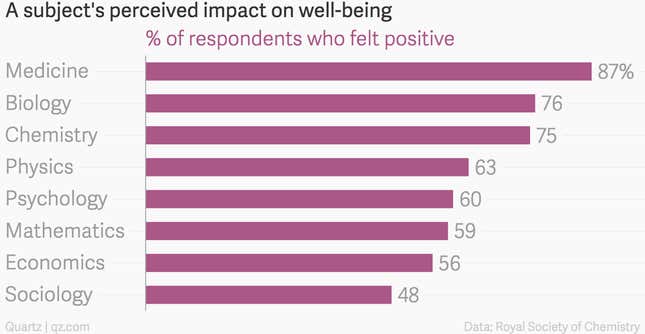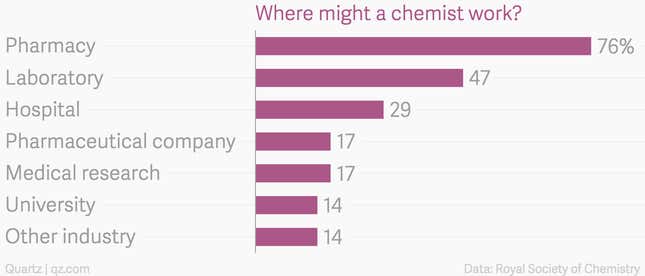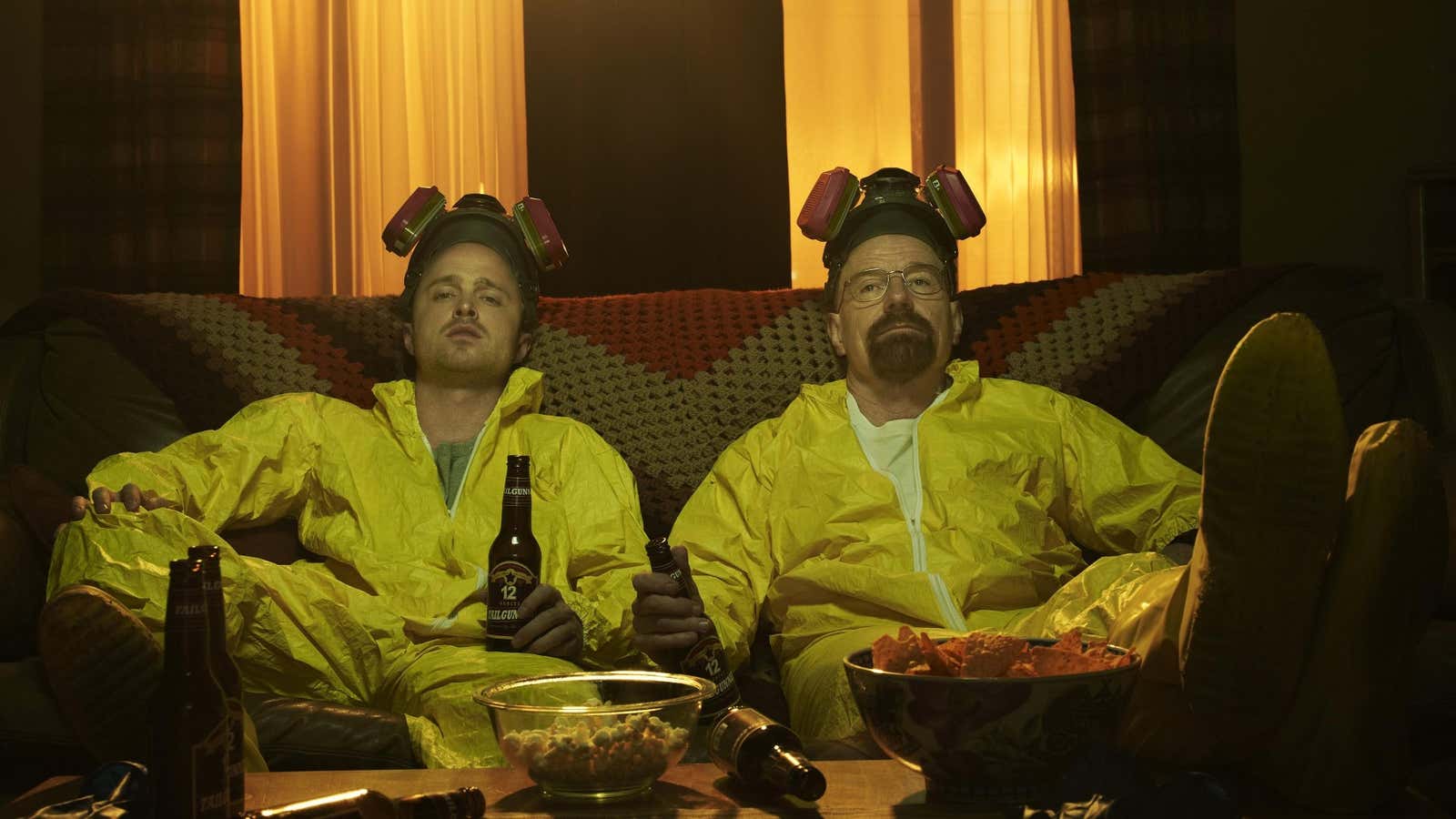Scientists rate among the public’s most trusted professionals, along with doctors and teachers. But few of us at the chemistry lab where I used to work seemed to feel that our specific field shared in that. We chalked up our insecurity to scaremongering news stories about chemicals, which we figured must dampen the public image of chemistry as a profession.
Even among peers, chemists sometimes have to clamor for respect—witness the criticism of some of the recent winners for the Nobel Prize for chemistry, and the need chemists feel to defend the work as belonging to the field of chemistry as opposed to biology or physics.
It turns out we needn’t have been quite so hard on ourselves. The public view of chemistry seems overall to be positive. That’s based on the results of a new poll commissioned by the Royal Society of Chemistry (RSC). Its Public Attitudes to Chemistry survey is the first quantitative look at the issue.

The survey involved 450 members of the RSC, which has its roots in the world’s oldest scholarly society of chemists, and more than 2,000 other people that were representative of the UK’s adult population.
Just the survey itself perhaps speaks to the insecurity that chemists feel about their profession, as no such subject-specific survey has been done for physicists and biologists, who presumably don’t worry as much about their standing with the public.
“To show off, physicists have cosmology and biologists have medicine. For chemists, it is genuinely hard to come up with examples that portray their success easily to the public,” Andrew Steele, a physicist and science communicator at the Francis Crick Institute in London, tells Quartz.
In the UK, chemists have another peculiar problem. The word “chemist” is used not just for those who work in the field of chemistry, but also more commonly for pharmacists who work at drug stores. In fact, the usage is so common that drug stores are often simply referred to as “the chemist’s.”

Chiara Ceci, who led the analysis of RSC’s survey, says the dual meanings speak to the history of the chemistry profession.
When chemistry was just becoming a science in the modern sense, chemists lobbied the British government to give them licenses to sell medicine, which was previously a monopoly of apothecaries. They were granted the licenses in the early 19th century, and it served chemists well because there was a lot of money to be made in medicine. Then, as chemists divulged deeper into the mysteries of the molecular world, the development of drugs became only a small part of their profession. But the public usage of the word “chemists,” as people who sell medicine, has stuck.
As for the other kind of chemists, the fretting I witnessed in a lab setting appears to be widespread, at least in one regard: More than half of the chemists who responded to the RSC survey agreed that most people “would say all chemicals are dangerous and harmful.”
If there is something that chemists really want to worry about, though, it is that most people don’t care that much about chemistry at all. The RSC concludes in its report that the public “did not see chemistry as personally relevant and lacked concrete examples of its applications; finding it much easier to specify and visualize negatives or stereotypes.” But this fundamental science has shaped almost everything you can touch, and it deserves a little more attention.
